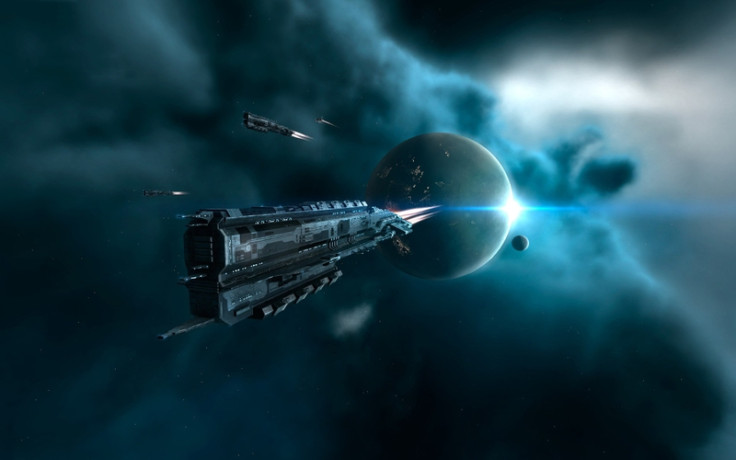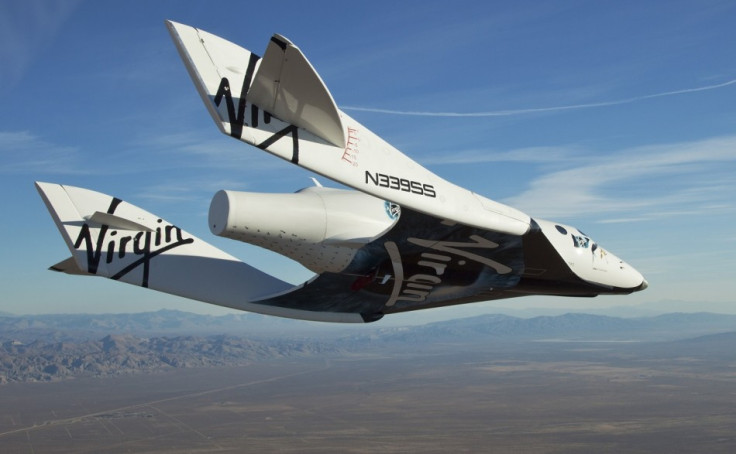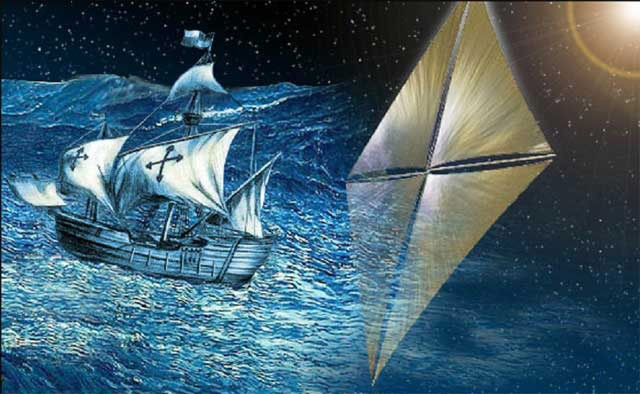Masters of the Solar System: We Need to Conquer Space to Save Earth

"Before we go to the stars, we've got to be masters of our own solar system."
This quote wouldn't sound out of place as the opening line of a science fiction television show, but one space expert believes that this mantra will not only save our own planet, but set us on course to explore the millions of planets in other solar systems across the universe.
Les Johnson may be a science fiction writer, but he also works for the Advanced Concepts Office at NASA's Marshall Space Flight Center and someone who believes that we only need look up if we are to save our own the planet:
"I think to save the planet we've got to go. We've got to go mine the asteroids, we have to start [beaming] power from space, we have to go get Helium-3 on the moon and figure out how to use that to make clean fusion power on the earth."
Orbiting solar power stations beaming clean energy back to earth and being maintained by people living in orbiting hotels. A flotilla of spacecraft mining rare earth minerals from near-earth asteroids used to build the electronics we use everyday.
This may all sound like science fiction, but given the chance, this is what Johnson believes we could achieve in just 25 years time.
Immoral choice

In his book entitled Harvesting Space for a Greener Earth Johnson and hi co-authors Greg Matloff and C Bangs argue that all the resources we need to save the earth are within reach while the alternative is just not a viable option:
"Environmentalism is good, conservation is good, but it is not going to do much to elevate the status of the five billion people who live in absolute poverty around the planet. If you tell them you have to remain poor for the good of the planet, that's an immoral choice in my opinion."
As a first step towards achieve his goal, Johnson is working on a spacecraft which is the size of just three loaves of bread - called a CubeSat - which will contain an 80 square metre solar sail and travel to a near-earth asteroid "to do reconnaissance and learn all about it."
Plunder the planet
The rare earth minerals which Johnson believes we could mine from asteroids are the materials used everyday in the manufacturing of our smartphones, tablets and computers, and something we currently get from strip-mining the earth:
"Everything that's in the earth's crust that we mine and make into things is out there [in space], but the only place where there is life and we can grow food is down here, so why in the world do we continue to plunder the planet and destroy eco-systems."
Johnson was seven when he saw Neil Armstrong land on the moon, and a combination of this and programmes like Star Trek gave him a fascination with all things space. At the time he thought that by now humans would have a base on the moon and have landed on Mars long before now "but it's a lot harder than we thought."
However the next decade will see commercial spaceflight begin with the likes of Virgin Galactic Johnson believes that this is just the beginning:

Space hotels
"I think once we have tourists going into earth orbit, we have hotels going into earth orbit, the cost goes down. The biggest single obstacle to going anywhere in space is the cost of launch and if we can get the flight rate up, launch costs go down."
Reducing the cost of launch will not only mean more people will be able to go into space, it will mean people will be able to carry out more scientific research and exploration that may not be commercially driven:
"We can start thinking about using space resources to help improve life on earth. We can start thinking that maybe it is possible to build space solar power stations.
"The space solar power stations that might provide green energy to the planet could be used to power the lasers and power the systems that sends us to the stars. It all kind of builds."
And the technology on which this will be based is being developed right now, says Johnson. Really efficient solar power arrays needed for orbiting stations are being built today and the technology to beam power back to earth is currently being developed by the military for transmitting data.
But what about going to the stars?
The closest star with a viable exoplanet is Alpha Centauri B which is 4.4 light years away. Voyager 1, which was launched 36 years ago and is still travelling would take Voyager 73,000 years to reach this system, but Johnson, who is an "unrepentant optimist" says that unless we think big - really big - we will never get there.
He says that 150 years ago, the idea of building a Dreamliner airplane would have seemed impossible and would have cost more than the entire GDP of the planet at the time, yet there was no technical reason why it couldn't have been built, and that is the way he is now thinking about interstellar space flight.
Johnson says that the ideas he talks about are all possible within the known laws of physics. Engineers may not yet have figured out how to build the systems he is postulating, but "nothing I talk about is impossible according to laws of physics."

Building Noah's Ark
Fusion drives, nuclear pulse technology, antimatter drives and solar sails are four "physically possible" ways we could power spaceships to the stars.
In the near term Johnson says, the one which is most likely is the one which would almost never be sanctioned - nuclear pulse.
This system would power a rocket by setting off a series of nuclear explosions underneath a well-insulated spaceship every three seconds and riding the resulting waves into space.
The problem is, it would effectively destroy the earth.
The only scenario Johnson suggests where nuclear pulse would be seen as acceptable is if we were facing an Armageddon situation threatening the future of the earth, then it might be our only option:
"If you have that kind of scenario, you've got to go with nuclear pulse. It's the only thing we could imagine building in that time frame. If the earth's going to be destroyed anyway and [this technology] will save humanity then yeah we could build Noah's Ark out of it."
Solar Sails
The most realistic option in terms of the technology available today is solar sails. By deploying a solar sail close enough to the sun, Johnson believes it would be possible to get enough acceleration to power a ship towards the stars - but even for an unmanned probe to reach our nearest star would require a solar sail the size of the state of Texas and one tenth the diameter of a human hair.
Work on solar sail technology is happening all over the world, with the University of Surrey in the UK the main centre for development in Europe and have a flight planned for 2015.
Johnson believes however that if we do want to send people to other solar systems, then the most likely solution will be a fusion propulsion system.
Cost reduction
Johnson says the advancements needed to make any of this a reality will be achieved through a combination of private companies and government funding as it will benefit the whole planet.
"I think you'll see the necessary technologies that don't have an immediate commercial return coming from government-funded R&D somewhere" while private launches and the likes of space hotels will be driven by private companies.
While there is some cooperation internationally to share new developments and technologies relating to space flight, Johnson says it's not happening fast enough:
"I think everyone is doing there own thing and competition in some areas in this way is good - spurs innovation cost reduction - but some things are really hard and I think when things are in the research phase and things are really hard to do, I think that researchers should be working together and sharing data."
Masters of the Universe
It's clear that Johnson is passionate about space and the stars, but it is even clearer that he is passionate about earth and how we need to save this planet first before travelling to others:
"To be masters of our own solar system, we've really got to figure out how to ease the strain on the planet - and space can do that."
© Copyright IBTimes 2025. All rights reserved.






















